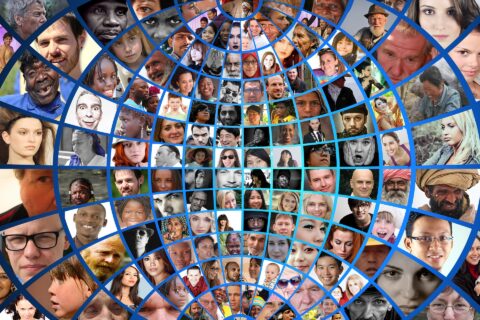How Things Could Get Better
February 21, 2023 Leave a comment
I’ve always been drawn to complexity – messy problems that overlap without clear boundaries or tidy solutions. The kind of issues for which many of us long for a straightforward solution. The kind of issues that many people rush to oversimplify in their quest for a solution. Racism is one of those issues. Here are just a few who’ve shone a light on the need to think and act comprehensively.
- Reflecting on lessons from the 1960s, Audrey Lorde reminded us that “there is no such thing as a single-issue struggle because we do not live single-issue lives.” She was reflecting specifically on the intersections of racism and sexism, and also on the fact that our current struggles for justice are built upon the work of those who came before us.
- Dr. King organized against the triple evils of racism, poverty, and militarism, declaring that “the promise of a Great Society was shipwrecked off the coast of Asia … I intend to keep these issues mixed because they are mixed. Somewhere we must see that justice is indivisible, injustice anywhere is a threat to justice everywhere.” Building on Dr. King’s legacy, the contemporary Poor People’s Campaign: A National Call for Moral Revival is calling for a comprehensive, multi-issue Third Reconstruction that addresses not only racism, poverty, and militarism, but also the failure to care for people and the planet, and the distorted moral narrative of religious nationalism.
- In her 2017 book No is Not Enough: Defeating the New Shock Politics, Naomi Klein stated “It is becoming possible to see a genuine path forward – new political formations that, from their inception, will marry the fight for economic fairness with a deep analysis of how racism and misogyny are used as potent tools to enforce a system that further enriches the already obscenely wealthy on the back of both people and the planet. …[formations that are] knitting together a multiracial and intergenerational coalition bound by a common transformational project.”
How does this matter for the work we do at IISC every day? I can see a few lessons and am curious about what else you see.
We can do more to help people explore how their central issues and concerns are inextricably linked to other issues and concerns, so that they can see more clearly the opportunities for partnership and solidarity. In the spirit of practicing net-work, we can help people understand how their work can be better leveraged if connected with others in the wider ecosystem.
We can do more to help people focus on building power through that partnership and solidarity – the kind of power that is necessary to meet the forces that hold the current social, political, and economic arrangements in place. We can focus more attention on what it would take to change those arrangements, even as we support people to strategize about how to survive and even thrive within those arrangements. We can remind ourselves to think and act more like organizers and less like administrators because we are, in fact, working to build the power necessary to birth a more just society.
We can do more to help people use their awareness of their own identities, particularly the identities that put them at the margins of society, to expand their consciousness and their circle of moral concern. As they say in the Poor People’s Campaign, “Everybody in. Nobody out.” We can encourage people to build relationships and learn from movements and leaders in other sectors, other countries, and from other identities. We can stand up against efforts to restrict what books we and our children can read and what pieces of our history can be taught.
And, in the face of such enormous questions and pressing needs, we can continue to encourage people to slow down, truly see one another, and find beauty and joy in the midst of struggle. We can celebrate the moments when we manage to weave together a network of both likely and unlikely partners, moments where we achieve small and large victories in our individual and shared work, and moments when we amplify ways in which justice, peace, and love manifest in our daily lives and work.
What does the path forward look like to you? How are you helping others to find a path through complexity and towards connection?